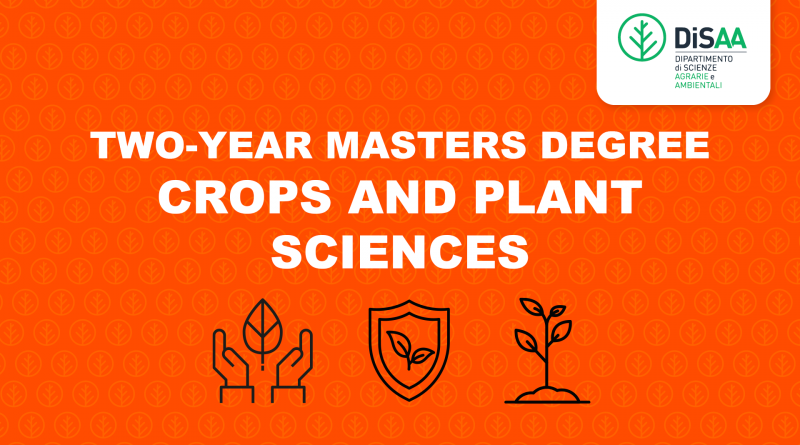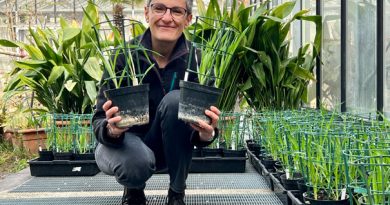TWO-YEAR MASTERS DEGREE IN CROPS AND PLANT SCIENCES
The two year course focuses on the application and the deep study of crop production within the plant sector. In particular, the first year includes an in-depth study of crop systems, focusing on the interaction between the plant and the soil and its microflora, and the interaction between plant and insects, including those methods of identification and control of possible pathogens. The second year includes two curricula on biotechnological applications and innovative plant production aimed at addressing the themes of genetic improvement and indoor cultivation for urban and peri-urban production such as vertical farms.
Not only. As part of the course, the university organises ad-hoc meetings between students and freelancers or recently graduates in the above mentioned fields in order to provide students with practical knowledge of the various profiles and useful information before for entering the job market.
SPECIALISATIONS:
The first year includes a focus on preparatory subjects, with a set of examinations on plant defence, biotechnology systems, innovative and cutting-edge defence strategies, to improve the productive and economic defence of crop systems.
The second year’s lessons are in English and the student will have to choose between two curricula with 24 CFU each:
– curricula in crop production to deal with activities linked to the planning and management of cultivation systems, the study of variables linked to the world of agriculture, with a focus on experimental planning and statistical analysis of data, and the definition of a genetic improvement programme, both traditional and biotechnological. Issues related to glasshouse production (and protected environments) and indoor cultivation will also be discussed in order to transfer a solid preparation to the regulation specificities which depend also on the crop and the place of cultivation chosen.
— curricula in plant biotechnology with a focus on the possibility of applying molecular biology to a genetic improvement system, for example, using molecular markers that enable to achieve objectives at shorter times by selecting genes of interest. These skills are highly required by the job market and the number of companies working in this sector in Italy is steadily growing.
MULTILINGUAL APPROACH
Especially in the second year, the lessons are in English, to strengthen the general language preparation of students as well as their technical language preparation. Examinations and exercises are carried out in English in order to acquire the terms that encourage graduates to interact with foreign firms and companies.
At the campus, there is also the possibility to interact with foreign students from other universities that come to Milan with an Erasmus fellowship. The DiSAA is a partner of emPlant ± Erasmus Mundi project which involves a network of European universities led by UNILASALLE, the leading university. Every year, at least 7-10 foreign students arrive in Milan.
Students can also undertake a study period abroad under the dual degree programme between UniMi and the Tokio University of Agricolture and Technology (TUAT) where our students, after a year of study in Japan, can obtain their double degree, with discussion of the final thesis in both countries.
LANGUAGE REQUIREMENTS
A B2 level of English is required to join this degree course, to be achieved by the end of the first academic year at the latest. A B1 level will instead be required as a requirement for access to the course.
TIMING
Applications for admission are open until 31 October 2022.
The possible registrations by 16 January 2023.
ADDITIONAL INFORMATION HERE: https://www.unimi.it/it/corsi/corsi-di-laurea/plant-science




